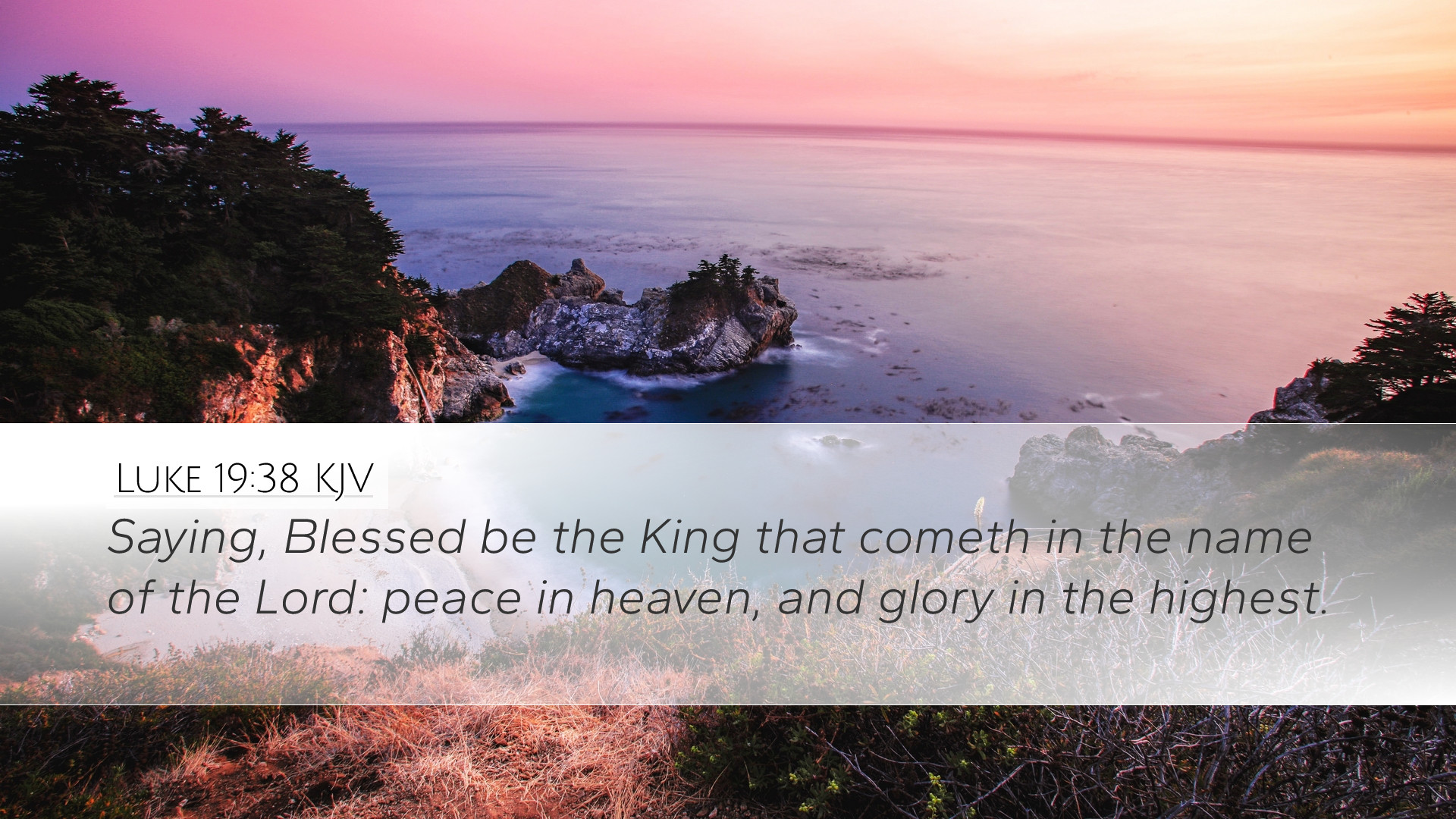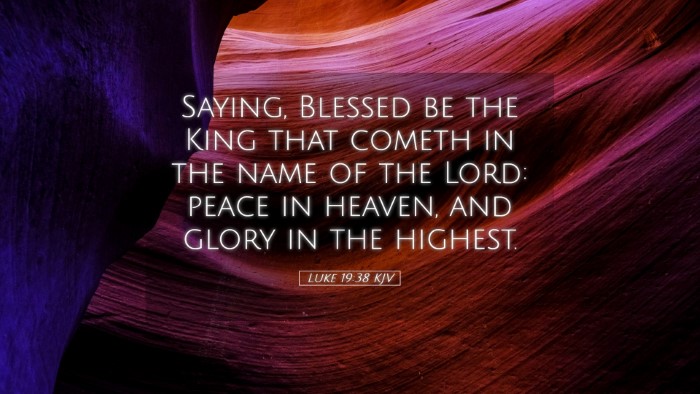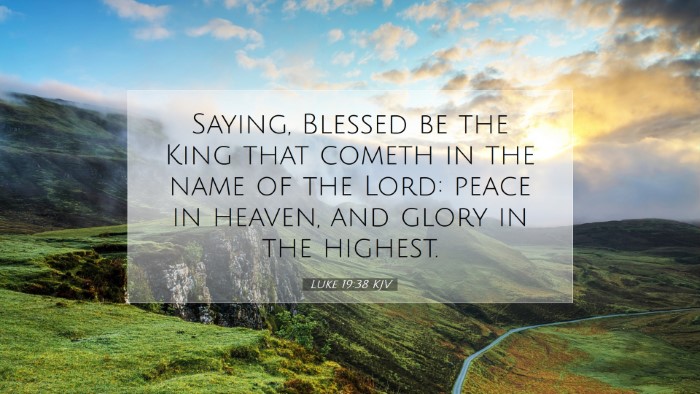Luke 19:38 states, "Blessed is the King who comes in the name of the Lord! Peace in heaven and glory in the highest!" This verse depicts a vital moment in the biblical narrative—the triumphant entry of Jesus into Jerusalem, marking a significant event in the life of Christ and the fulfillment of messianic prophecy.
Contextual Analysis
This passage is embedded in the broader context of Jesus’ ministry. It occurs just before his crucifixion and serves as a profound declaration of His kingship. This moment is not merely a procession; it is filled with theological significance and prophetic fulfillment.
Matthew Henry notes that this entry fulfilled the prophecy of Zechariah 9:9, which states that the King will come to His people riding on a colt, the foal of a donkey. The humble nature of His entrance speaks volumes about the kind of kingdom He was establishing—a kingdom not of worldly power, but one of peace and righteousness.
Theological Insights
In this verse, we see a dual proclamation: firstly, "Blessed is the King", signaling recognition of Jesus as the messianic King; secondly, "Peace in heaven and glory in the highest!" This echoes the angelic announcement at His birth in Luke 2:14, linking His identity as King with the theme of peace.
Albert Barnes expounds on the significance of acknowledging Jesus as King. The people’s worship is a critical aspect of recognizing Jesus’ authority and reign. Their shouts of praise ultimately highlight the joy and expectation of the Messiah’s arrival.
Furthermore, Adam Clarke emphasizes that the term “peace” indicates the peace that Jesus brings—not just as an external force but as an internal assurance and comfort to believers. This peace signifies reconciliation between God and humanity through Christ.
Messianic Recognition
The crowd's declaration is a powerful testament to their recognition of Jesus as the long-awaited Messiah. They proclaim blessings upon Him, showing their understanding of His role as the one who comes in the name of the Lord.
- Cultural Context: In the Jewish tradition, the crowds understood the significance of welcoming a king into a city, especially during Passover—a time of great national importance.
- Expectation vs. Reality: While the crowd celebrated, their expectations of a political Messiah would soon be challenged by the reality of Jesus’ mission to bring spiritual redemption.
Henry’s commentary reminds us of the bittersweet nature of this acclaim; while the crowds rejoiced, their understanding was marred by political aspirations rather than the spiritual transformation that Jesus sought to bring.
Worship and Praise
In this verse, we find an essential lesson regarding worship. The people's response was spontaneous and joyful, recognizing Jesus’ authority and divinity. Their exclamation, "Blessed is the King," is an act of worship and acknowledgement of His rightful place in their lives.
Barnes notes that true worship involves recognizing the character and mission of Jesus. It is not merely about external expressions; worship flows from an understanding of who Jesus is and what He represents in the believer’s life.
This moment echoes the need for believers today to offer genuine worship, recognizing Jesus not just as a historical figure, but as the living King who reigns in power and grace.
Application for Today's Believer
The celebration of Christ's triumphant entry into Jerusalem serves as a reminder of the response believers ought to have towards Jesus today. The call to recognize His kingship is pertinent, especially in a world filled with uncertainties and distractions.
- Acknowledgment of Authority: Believers are called to submit to the authority of Christ, recognizing His sovereignty over their lives.
- Living in Peace: Understanding the peace that Jesus brings allows believers to navigate life's challenges with hope and assurance.
- Joyful Worship: Just as the crowd praised Jesus, believers should engage in worship that reflects the majesty of Christ, celebrating His presence and work in their lives.
In essence, Luke 19:38 challenges every believer to consider how they respond to Christ's kingship and invites them to express their worship in a manner that honors His glory.
Conclusion
Luke 19:38 encapsulates a moment of profound significance in the gospel narrative. Through the insights of Matthew Henry, Albert Barnes, and Adam Clarke, we gain a deeper understanding of this pivotal passage. The verse collectively challenges believers to recognize Jesus as their King, to live in the peace He offers, and to engage in joyful worship as a reflection of His glorious presence in our lives.
As we reflect on this verse, may it spur us on to deeper faith and more vibrant expressions of worship in our daily lives.


